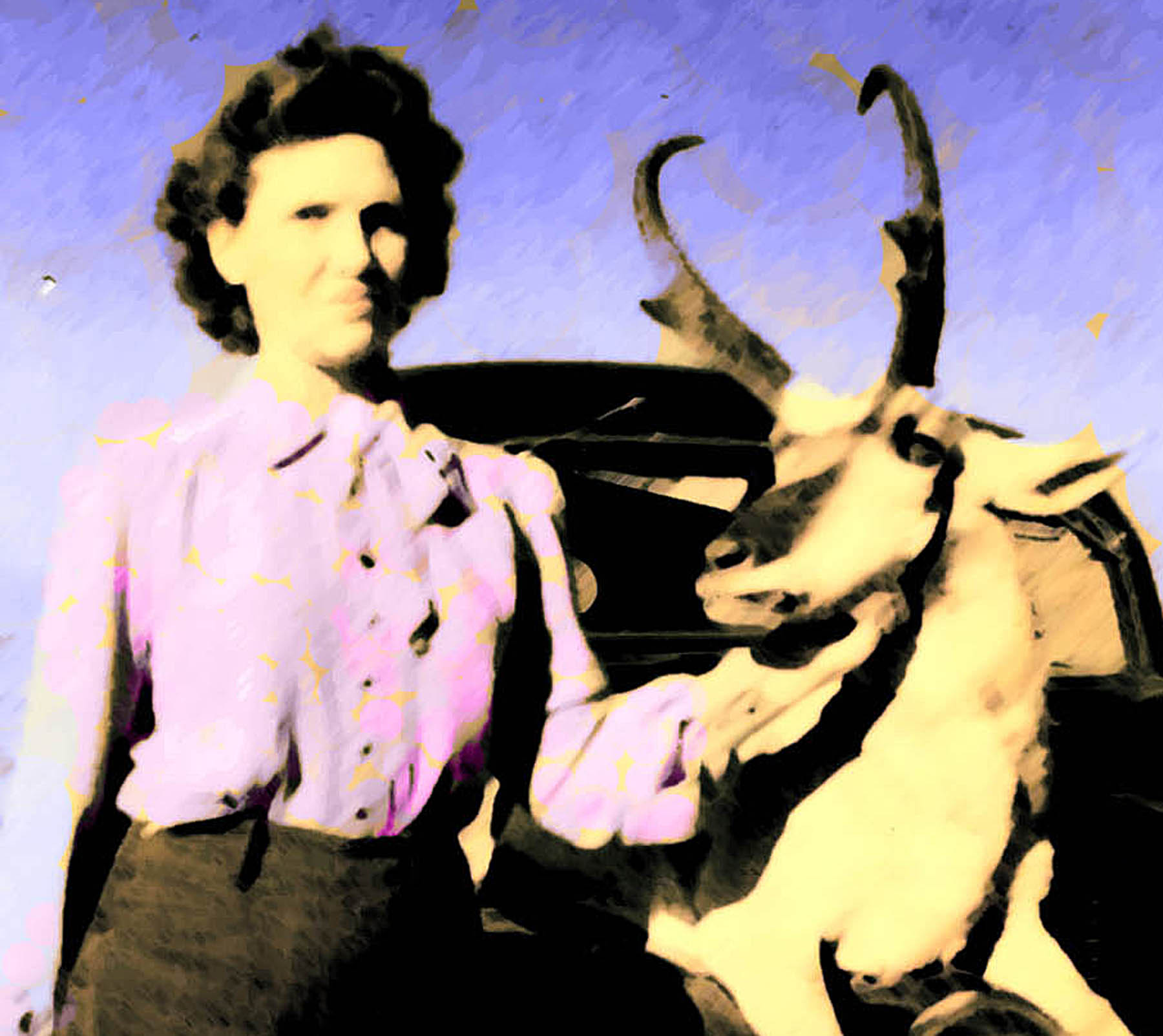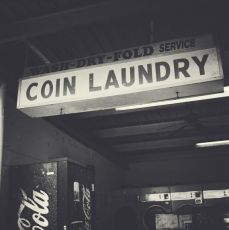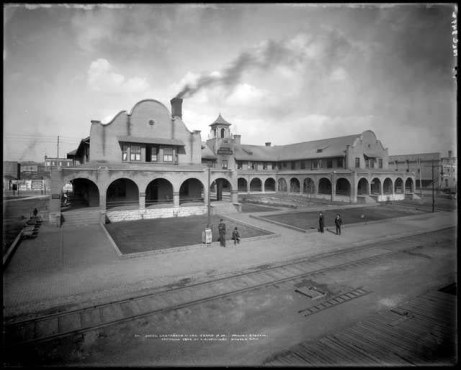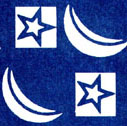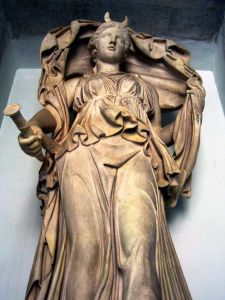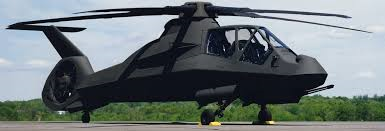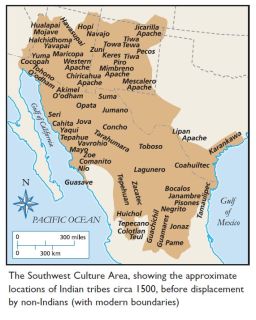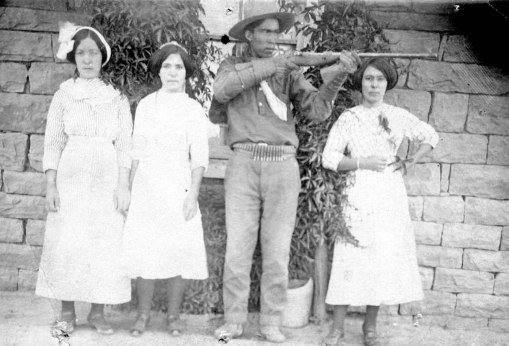The Long Way to Arizona
17
Yellow grass, yellow dirt, gray outcrops of rotted shale; it’s a long drive into Walsenberg because I had no coffee this morning. The cafe where I usually eat seems cheerier than it did in March. Denver Broncos posters relieve the uniform green decor and a salad wagon with a paper turkey affixed to the top breaks up the long room. Country music plays on the radio and a new man cooks in back.
I ask the owner, who is also the waitress, how the gambling referendum went in the recent election. “Northern Colorado shot us down, gave speculators all the time they need to buy this town, cheap.”
“And are they – buying?” I ask pushing away white silk Easter lilies to make room for breakfast.
“Are you kidding? Local owners know gambling won’t come for years now and they can’t afford to wait like the rich SOBs. And so many are old. It’s terrible how they’re selling out for whatever they can get.” She serves me the usual terrific breakfast burrito which I devour while the men at the counter talk pheasant hunting; the owner gripes to the new man.
“I’ve run this place eighteen years and been a waitress twenty-six. But these bitches I got workin’ for me… It’s slow? They sit and smoke. You think they could take the time to clean or restock?”
“It’s a welfare town,” the man says. “They don’t have to work.”
“Oh yeah? It gets slow in the restaurant I’m gonna lock up and go home.”
Breakfast costs me…seven dollars? Chitta. She doesn’t have to be mad at everybody.
At the hamlet of Farisita a little graveyard sits on the south side of the road, on a gentle slope that drops to a stream. The graves lie perpendicular to the fall line which produces the sensation that the headstones will cartwheel downhill. Above the cemetery the Sangre de Christo mountains, named by men who were dead drunk, defy description. Clean, carved, majestic, cold, vast, it makes no difference how many adjectives I might use. They are second only to the Tetons and that’s a close call. Too bad hardly anybody sees them.
19
Snowflakes become stars which turn to streaks when the USS Red Truck hits warp speed. Actually, I can’t judge my speed because the road has vanished and I could swear I’m driving backwards. To take my mind off the disorienting snow storm I call up the pleasing picture of Texas Teddy R’s new friend, who was, when I arrived at the Texans’ new saddle shop in Westcliffe, Colorado, hunched over the wood stove in a canvas coat and brown hat. Mischief, I thought. He looked up with bashful gray eyes and I was swept with the feeling that I already knew him. I almost asked, What are you doing here? but I was afraid that if I said anything I’d start spinning in circles of happiness like the black dog.
Mischief drew a deep breath, tugged on the brim of his hat, then looked down and back again. His lips parted, he tugged at his hat again and said, “I’ll be back.”
The Gunslinger dropped by (it seems he followed the Texans up here); four additional Texas transplants trooped in and the shop people from next door came over with a girl from the cafe. Mrs. Texas Teddy R arrived with the baby and her cousin, a seventeen year old boy who has moved in with them, and finally, Mischief returned.
When at last I pulled my eyes from his I heard a sound like Velcro ripping. My insides bounced up and down and I understood why dogs bark. I caught myself following him around the tiny room so I headed the other way only to find him following me. Our attention was suddenly demanded by the ungodly screeching of Mrs. Texas Teddy R.
“Ahh wont all these people outta here NAOW!”
“Huh?” was our collective response, though she addressed Texas Teddy R himself.
“These people ain’t gonna buy nuthin’. They are takin’ up space and drinkin’ our coffee.” We visitors froze, momentarily incapable of incorporating her meanness into our genial afternoon. “And you, mister! I want your butt in the back room makin’ saddles.”
Poor Texas Teddy R, caught with his pants down and in front of so many witnesses. The Texans remind me of the Romans: unwilling in thought they are reduced to rhetoric and marching. My prediliction to analysis, or ‘five-siding’ as Texas Teddy R calls it, drives them to despair.
I can still see Mrs. Texas Teddy R’s mouth screwed into the shape of the state of Florida as I tried to discuss options they might follow to afford a new truck, including waiting awhile.
“But Ahh wont it naow and that’s NAOW,” she screamed.
It appears that the truck has hit warp speed again as snow flakes the size of dinner plate dahlias spin in the headlights. I check the speedometer – 15 mph. Good Lord. I speed up and count on a drop in altitude to clear the view.
24
Denver, which is an hour away on the average day, is snowed in, and I’m stuck at the only RV park in Colorado Springs that stays open in the winter. I stumbled on it last night in the thick of the storm and now the trailer is buried in eight inches of snow.
A guest on a local radio talk show claims that Christians should take their children out of public schools. Secular education is by definition bad, he says. He himself publishes “easy to read, easily digestible books with a Christian viewpoint. Existing books (the kind in libraries) are too difficult to read, so I write easy question and answer books,” he says. Perhaps I should give up writing, I think. But never reading. After all, it’s an activity that can be prosecuted almost anywhere, including inside a frozen Spam can at an RV camp, and the ancient Romans are an inexhaustible subject. Take diet: they had a good variety of vegetables like cabbage, lentils, beans, lettuce, radishes and turnips, gourds, pumpkins, melons and asparagus; plus grains, fruits and abundant seafood, naturally. Still, a meal Pliny the Younger prepared for a dinner party is plain odd: each guest was served a lettuce, three snails, two eggs, barley water, sweet wine with snow and… how did one prepare and eat a paunch filled with tuna water? Translators ought to explain these things.
The little electric heater barely keeps pace with the 14* temperature and 35 mile per hour wind outside, but I’m content to lie in bed like a sick-of-winter invalid. The black dog, who impersonates a compact bundle of sweetness for the moment, warms my toes. The old dog dozes sitting up, hoping to snatch a snack should I launch one his way. He sinks to the floor in front of the heater, hoists himself up again and pleads with his eyes. I motion for him to join us on the bed. He crawls halfway up and totters, too weak to push himself farther, so I hoist him onto the bed like a man onto a life raft. The two dogs arrange themselves butt to shoulder at my feet, tuck noses under tails and fidget until they are lost in time. 25
I’ll give thanks this year with friends who have built the kind of family that might soon be extinct. Mom, dad, three kids, two dogs and a cat buzz about a three story Victorian house hemmed in by fifty-foot fir trees. Dad has braved the blizzard and a fear of heights to trim the roof and the long, curving porch with strings of fat Christmas lights. I park the truck and trailer on a side street and wade through a foot of snow to the back door which opens onto an explosion of noise, and I’m washed by a wave of greetings and laughter.
Upstairs, in a room at the end of a wide hallway, I find my bed buried beneath a white lace comforter. The radiator hisses warmly and family pictures cover the walls. A real house, a real home. How novel.
26
“How do you like living here?” the youngest boy asked me after turkey dinner.
“It’s swell,” I said. “How do you like it here?”
The boy paused a second, and then giggled. “It’s great. You know, if you stay here and sleep in your trailer you don’t have to pay rent. But if you have a room of your own you’ll have to pay my dad.”
December 1
Susie, the Cristo of Westcliffe, Colorado, wraps each picture that hangs in her cafe with Christmas paper and a bow. “Do the Seagram’s sign,” she tells a waitress. I eat then leave town having said good-bye after Texas Teddy R grabbed his two dogs by their collars, lifted them in the air and smashed their skulls together just because they wouldn’t get out of the truck. I couldn’t speak but turned my eyes away as he dragged the whimpering pair through the snow to the barn, kicking at my old dog and calling him “Old Bastard” because he nipped at the male.
You are the leader of the pack, I thought. He’s just following your lead.
One again we follow the aching frozen beauty of the Sangre de Cristo range. Antelope with bellies of snow and backs of earth dissolve into snow-patched fields. A red fox crosses the timeless winter road, slips beneath a fence, covers his rear with a glance, and lopes off.
The truck at last bores south on I-25. I don’t look back but accede to a wonderful numb and empty state induced by speed and successive horizons.
A freight train curls down the Colorado side of Raton Pass and on the New Mexico side dark volcanic islands ride a ghostly horizon. A few spots show white, but the plains for the most part have been blown free of snow. At the 1991 Award Winning Rest Area south of Raton, the sunshine is warm and so is the wind, as it blows flying saucer clouds across a pearly sky.
Wind-packed snowdrifts near Springer glisten like mica and many fat hawks work the shadowed afternoon fields. It was a long ago me I sought in Denver, an error as foolish as a hawk hunting its own shadow. I drop the quest behind me like a troublesome hitchhiker.
Western jacket made from vinyl.
3
It looks as if some careless civilization has used the Rio Grande valley as a trash dump: Albuquerque, next fourteen exits. Plenty of time to wonder how any place can be this ugly.
The course of the Rio Grande is delineated by a bruise of dark, bare trees which feed from the stream. The roadway slices ancient watercourses, now filled with sand, which were cut into thin basalt flows that rolled red hot from their source to bake the soil and ignite everything in their path. I wish I had a dollar for every man I’ve seen pissing at the side of the road. The odometer clicks 20,000 miles and beyond.
A narrow passage Near San Acacia, that cuts through a butte split by the Rio Grande, was a favorite site for Apache ambushes. It’s a quiet place of dormant fields now but the route was formerly so dangerous that the Spanish chose the waterless path along an abandoned course of the river which lies to the east, the Jornado del Muerto, death by dehydration being preferred to capture by the Apaches, who dined on half-cooked steaks of flesh stripped from their victims as they burned to death.
Near Albuquerque the crust has spread thirty miles in thirty million years, but farther south near Alamogordo, the rift complex is sixty miles wide. A massive bajada, which is an apron of debris, buries the mountains along the west side; huge, flat-bottomed chutes lead to the river through miles of boulders, cobbles and gravel. Intertwined threads of fine sand trace where water has flowed along the bottom. The road drops into and crosses one of these chutes, which has vanished in its own shadow, Nogal Canyon, a place the devil might tread to drink from the Rio Grande.
The temperature is 58* when I stop for the night at Elephant Butte State Park. Starlight and a thin sweep of clouds shade a half moon. I remove my jacket and wander, enveloped in the wet tang of creosote and sand.
4
The gates to the state park at Leasburg Dam are locked at dusk and I slip through with minutes to spare and search the loops for an electric spot. Campers anticipate Christmas. A string of lights rings a shelter and another outlines a tree in an RV window. It’s a cheery cul-de-sac, but full. I remove to a row of empty sites laid out on a flat that reeks of creosote. To the west, dry grasses and rabbit brush spread toward indistinct, gullied hills. The dogs eat their dinner in the drizzle while inside the trailer I repair the usual disorder.
A car stops outside and a figure passes the window. I open the door onto an elderly gentleman clad in a blue cap and jacket who smiles through a mouthful of missing teeth. Rain splashes his cheery face. “Welcome,” he shouts. “I’m your campground host.” He retails park services including the combination to the lock on the gate, in case I need groceries or “a night on the town.”
“Thanks,” I tell him, “for coming out in the rain.”
I stretch out on the bed, bolstered by pillows, and write to my dad, telling him how I’ve escaped winter. I finally called him after the eccentric couple said he’d called them looking for me. There were no hard feelings on either side, although I haven’t yet spoken with my brother. Our family is like a car that drove off the assembly line on four flat tires. No one noticed and we just kept driving. Periodically I point out that the tires are flat, but I’m outnumbered so I have to get out and walk. Actually, I’ve been walking a long time.
5
We nick the corner of Las Cruces and catch I-10 west. The sky is reflected in two wide, wet tracks which cut through a heavy snowfall that stopped travel last night. From radio reports it looks like we’ll be enjoying two hundred sixty-seven miles to Tucson, on ice, trapped between kamikaze trucks. I count a caravan of forty-one of the beasts heading east and pass three accidents in thirty miles.
From the overpass into Deming a line of trucks is visible to the horizon, maybe all eighty-six miles to Arizona. A truck stop looks like the place to be, its parking lot consumed by carefully parked rows of rigs and a jumble of autos. Inside, the restaurant air is numbing and patrons wait like concrete statuary for the solitary waitress who is as fluid as the oil in the crankcases of the vehicles outside.
Down the main drag, I stop alongside a motel with a cafe at the front. Two old guys smoke cigarettes and drink coffee at a table by the window and a group of eight people, who look related, dine beneath a dozen plastic garment bags which are hung on the wall like paintings. Within the bags are sweatshirts decorated with a craft product formerly marketed as toothpaste, which has empowered millions of American women to spread stupid southwestern motifs across the broad backs and ample bellies of the land. I sigh.
“Chicken fried steak,” I tell the waitress, then help myself to the salad bar.
A woman from the eight-top says hello as she fills a plate with macaroni, Jell-O and a cherry tomato. I tell her about the truck stop since the sum of my experience in her town is my stop there, and we go to our seperate tables.
“She couldn’t get waited on at the truck stop,” the woman announces to her companions.
“It’s been repo’d again,” one of the men says.
“They still got the same lousy food, I bet. She’s lucky they didn’t serve her,” another chips in.
“She said it was real cold inside,” the first woman says.
“They must not have paid the heat again,” someone concludes. My brief status as a topic thankfully ends and they focus on the weather. Hmm. The coffee tastes like it was made with aquarium water, the gravy could stick an elephant to the ceiling, the peas are canned and I’d trade my steak knife for a chain saw.
I hurry to buy a few provisions and another ten bucks floats to the check-out counter; the road to Rock Hound State Park aims south to Mexico, runs east through pretty ranchettes, angles southeast across the water-filled dips of an apron and ends where the mountains become a volcanic wall. The campground, which is tucked in at a break in slope, appears to be empty, but the scale is deceptive and as I drive closer I see a motorhome and two trailers, mere Tonka toys against the northern reach of Las Floridas.
Cloud bottoms are maybe a hundred feet overhead and I steer toward the inviting Olympian tufts. Suddenly, the truck tires spin futilely on the icy track. Why don’t I pay attention to where I’m going? A man stuffed into a down jacket, knit cap and a beard appears next to the truck.
“Back on down the hill,” he says. “I’ll guide you.”
Shall I warn him that backing up causes the two halves of my brain to quit talking to each other? “OK.” I smile and take my foot off the brake.
In seconds he’s pounding on my window. “You’re gonna hit a pile of rocks over here.”
“OK.” I smile and nod as if I can do anything about it, gun the engine and grind millions of tire molecules to oblivion.
He pounds on the window again. “You can’t go forward.”
I smile, nod and throw the transmission into reverse, look straight up the hill and hit the gas. I check the rear view mirror. Perfect. The trailer sits between a shelter and the rest rooms, poised to change direction. I wave to the man then follow the road to a level pull-thru.
“Hey, hey!” A man in a flame orange flannel shirt, army jacket and white jeans yells at me in a Boston accent as I plug in the trailer’s electric cord. “Don’t go down to the gate. Register here.” He stands in the doorway of a yellow building and points to the ground at his feet.
The windows of the park office overlook the valley, north to Deming. The man, and a helper with a cauliflower nose and state park patches on his cap and jacket, stands around as I fill out a payment envelope, insert four dollars and hand it over.
“Put it in there.” The Easterner points to a yellow, bomb-proof cylinder mounted on a bomb-proof stand. “And keep the white and yellow copies for yourself.”
“I don’t need them,” I say, having decided pieces of paper that I’m supposed to keep never do anything but fill boxes. He takes the envelope from me and tears the receipts off anyway before I can drop it in the canister. We are now free to talk weather, which we do for fifteen minutes.
The dogs have not eaten much of the food I set out for them, a brand of chow they evidently despise. I give them a pep talk about dogs being on the plate in several cultures then throw snowballs their way. The black dog catches several in his teeth, paws the snow for the ones he misses then gets that look. He takes off, manic to the tips of his racing toes. Like a cartoon dog unfrozen from the comics page, his back feet come forward in a hairpin turn each time he reaches for a touch down.
Clouds inhale moisture, grow denser and close us in. The profile of a volcanic stock just to the west disappears and a giant Spanish Bayonet fans perfectly, ice-edged in the gloom. Cold air sinks like poison gas through every crack in the trailer as I hurry to fluff the down comforter and crawl beneath it. The lights go out and the heater goes silent. The elegant yucca is my sole companion in the fog as I reset the circuit breaker. Five days into ten months on the road and I still don’t want to live anywhere. I prefer to come and go, live the secret life of a snake or a jasper boulder that tumbles in an arroyo.
6
Three white-haired folks who sit behind the entry desk at a museum in Deming are embarassed to be caught with their mouths full of treats. In the main room partiers consume cookies and punch to the sounds of a cranky piano,
“I’ll find my way around. No need to get up,” I shout.
A woman in a lime green pants suit swallows hard, wipes her mouth and asks, “Do you need a guide dear, or can you just wander?”
I’ve come to visit the world’s most wonderful cowboy boots and I slip down the hall to the glass case where they are kept.
At 8:30 p.m. I revive from a state of unconsciousness like having been hit by a mallet. Fog clasps the trailer and the single light at the park entrance makes ice droplets in the air into pretty, visible things. I turn down the radio, light a candle and open a Pepsi. How easy it is to sleep, to join the earth in suspended animation. Books I could read poke out of the covers like icebergs but my head hits the pillow with a thunk. The little heater whistles like a cricket and the dogs are soundless, overcome with the drug of fog.
An hour later I return, hot and happy like a poached egg. I eat peanuts, drink Pepsi and think. The prospect of sunny days in Arizona can’t override a feeling of dread. In my mind, happy hours spent in the pretty cemeteries comingle with three years of bewildering stupidity at, of all places, the university. Ironically, the resulting anger propelled me into the best months of my life. I’ve dropped a lifetime of institutional refuse along the way, left it to be sucked up by the wind and annihilated. Nature takes it all and makes something pretty of it. Fog or dust devils or a plain wind. Still, I drift toward Arizona like a doomed satellite captured by a planet.
7
“The left tire on the trailer is losing air,” I tell a kid at the auto shop who looks remarkably like Kirk Douglas. He bounces on the balls of his feet, grins sideways in a dimwit way and assures me he’ll fix it right up.
The waitress at a nearby restaurant (black jeans, a red ruffled blouse and lacquered, inverted bangs) brings me lunch. I never had a sweet burrito before. It’s cloying, especially the sea of gooey jack cheese that scoots around the plate when I put a fork to it.
“All fixed.” White teeth flash like the kid has a diabolical secret he can barely keep to himself.
We drive across streets named Diamond, Platinum, Gold, Tin and Copper to arrive at an RV repair shop where I hop around in the cold while a mechanic works on the propane heater, which I’ve never used but will need soon. The usual nonsensical conversations with the guys who hang around such places, take place. An old boy who has probably worn the same crumpled cowboy hat and coveralls for thirty years speaks up when he sees my Wyoming plates.
“I seen ol’ Earthquake, have you?”
“Ol’ who?”
“The horse on your license plate.”
“He has a name?” I’ll be.
“Sure, he was a famous bronc. I seen him on display in Okie City at the Cowboy Hall of Fame.” I picture a life size, red metal cutout of a horse, just like the one on the license plate, accompanied by a label that says, Ol’ Earthquake. OK to Touch.
As I hop up and down to distract my cold feet, I promptly forget the name of the horse. A tall kid dressed in jeans and a thin extra-extra large T-shirt, leaps over the trailer tongue and exclaims, “Oh what a beautiful puppy, what a sweetheart. Can I pet him?” The black dog’s head sticks out of the window like a trophy.
“It’s equal opportunity pets around here,” I say as the old dog forces his head through the hole. A two-headed dog soaks up the attention like sand does the rain.
“Where are the men who work here?” the boy demands of me. “I need a hose,” and he dances around the truck into the burrito stand which fronts the building. Something eye-high and red moves near my shoulder. It’s a Santa Claus hat. A K-Mart badge is pinned to it. It says, Moses. The broad smiling lips, flat wide nose, long black hair and thick, muscular body of a Toltec god is under it. The god wears a gray suit, white shirt and black tie. His face is sweet and menacing at once as he asks stupid questions like, “What year is your truck?” and “What kind of gas mileage does it get?” then slips in, as if to be smooth, “Are you married?”
I laugh from habit. “I’m sorry,” I say. “I’m laughing because everyone asks me that. No, that’s not right. Men ask.”
“You’re attractive,” he says. “I don’t understand an attractive woman alone.”
“That’s why I’m laughing,” I laugh. “A man says to himself, ‘There’s a woman going to waste.’ It never occurs to him that a woman has a life beyond the limits he can imagine for her.”
He eyes me sideways like I might be dangerous then says, “You’re a teacher aren’t you?”
8
A mass of cold wet air moves up the valley on twisting winds like the silver tongue of a snake that is about to devour Deming. It’s 9:30 AM and as dark as Hades as I drive into town in search of an RV park.
US Marines, outnumbered by reporters, squint in the glare of TV lights as they make divots for themselves on a beach in Somalia. They look vulnerable and violated like mother turtles who have come ashore to dig nests and lay eggs only to find a crowd of nosy naturalists intent on filming their private lives.
A man who was here earlier, in the so-called clubhouse, took a break, leaving his portable computer, a pile of papers and two textbooks behind. He retired recently from the Air Force and took the only job he could find, as an English teacher at the middle school in Deming.
“Teachers here work two or three years then move on to bigger cities,” he said indicating a like intent on his part. He lives at the RV park because his family has yet to move down from Clovis, New Mexico.
“If I had stayed in Illinois I would be finished with student teaching and certified,” I told him.
“That close? Why didn’t you finish?” he asked. “There’s an opening right now for a science teacher at the high school.”
Why? “Allah has laid out the earth for you like a vast carpet so that you will travel its endless roads,” is one sentiment in the Koran that I can endorse. Back at the trailer, Earnest Tubbs waltzes across Texas.
9
An old man sticks his head out of the driver’s side window of a pale school bus which is parked next to me. Downy hair fluffs from his scalp and opaque china blue eyes bulge on either side of a hooked nose. His head bobbles shakily, like a baby bird’s, as he hangs onto the window glass for support. His lips move, I hear “Cheyenne” over the wind and, “lived there once.” Seems everyone has. I stand in the damp, cold air and balance a dishpan of soapy water against my stomach while the nestling fixes on a point above my head and speaks like a prophet.
“I had a trailer like yours. Blew all over the highway. I had seven Jeeps, five of them new. Wore them all out. Got this bus. It’s good.” He looks at me. “I said, ‘You live in Cheyenne?’”
“Only in the summer sometimes.”
“I live west of Fort Collins in the summer.” He grins. “I’m an Indian.”
“You have blue eyes.” My teeth chatter as I eye the restroom, which is where I was headed.
“I’m an Indian,” he repeats.
“I see.”
“From back east,” he says.
“Alright,” I say.
“It helps. See the tires?” He points a long shaky finger at the left front tire of the old bus. “I was at Canyon de Chelley and I needed new tires. Some Navajo boys took me up to the school and gave me six new tires for twenty dollars. And I gave ‘em another eighty bucks to put them on the bus.”
Sun-shredded curtains hide the inner bus from view but I doubt I should want to see it. I think of my own father, try to place him in the window, deaf, rambling and mysterious like this old birdman, but I can’t imagine him without his mind, a mind that desires to dominate everything around it. It’s his nature, like a tiger, like the tiger that surprised me at the Denver Zoo by pacing silently up to the glass wall beside me. Something like telepathy told me its jaws were inches from my head. I turned to see it glide by, frustrated that I was not available for lunch. Its immense, buttery shoulder muscles worked under the luxurious coat, its teeth showed just enough to intimidate. The white whiskers invited stroking, and the amber eyes disappeared in a bored blink. Such is my father. I’m glad that he’s in his own decent home with my brother to take care of him.
10
A retired black couple lives in the trailer across the lane from me, former New Yorkers who in the tradition of east-west misunderstanding like to make fun of the locals and their ways. His big peeve is bilinguilism.
“Who do these people think they are?” George asked the universe yesterday. “We got thirty languages in New York. You can’t go ‘round teaching kids in different languages.”
“That’s right,” Dorothy added. “Everyone’s got to learn English if this is gonna work.”
Today, George and I stand in the gravel lane between our trailers and build the ultimate trailer. Lightweight but rugged, solar and self-contained, it’s the space-shuttle of mobile abodes. He wears a Russian fur hat with the ear flaps in the ‘up’ position, a ribbed khaki sweater, tan slacks and walking shoes and he carries a sport coat over his arm. Dorothy, equally formal for these parts, strides up and chides us good-naturedly.
“Honestly, you two are two of a kind. Talkers. George! We got to go.” Her gripe, as she expressed it, is that certain families in New Mexico “Have things tied up. The cops, the mayor, the judge and the drug dealers all have the same last name. You can’t get nothin’ done.” This seems to me an odd complaint to come from a New Yorker. She’s also upset that no one in Las Vegas, Nevada, would cash her personal check. Christ. McDonalds wouldn’t take a fifty dollar bill from me this morning unless I gave them my drivers license and social security card to copy. Fat chance.
11
I leave Deming driving west on I-10 and promptly pass a semi trailer that has been opened like an orange juice can by a train. Cabbages cascade along the rail embankment and a worker tosses one up and down. Due to the strength of the wind I have a rigor mortis grip on the steering wheel as we cross the continental divide at an elevation of 4585 feet, although how surveyors picked the correct spot on these flats, I don’t know. At the border I can hear the dogs fighting in the back of the truck, which is peculiar.
Arizona opens with fabulous, wild islands of blue rock masses which drown in their own debris and smaller buttes which rise like the horns of Moses. Bits of cotton stick to everything and three-wheeled contraptions that look like cotton candy machines bounce mightily along access roads to the fields. Bare pecan trees might be squandered paint brushes planted in rows.
The stark, gravel compound of a park in Willcox is fronted by a pink brick building and a sign that advertises Luxury RV Lifestyle. Especially bad southwest art from Asia clutters an office which suffers from an overdose of blue color. The rest of the place is klutzy, cold and out of scale, like the egos of drunken men.
12
A service station is just visible in a secluded area of blond grass and creosote just below the highway. I exit, fill up the truck and inside, wait to pay. A man who stinks of half-digested beer pulls a sticky wallet from his front jeans pocket, teases out his drivers license and thrusts it at the cashier. An egg-size scab mars his cheek, or is it a thick spot in the scum which cloaks his skin and mats his hair?
“Here, here,” he says. “I’m gettin’ two dollars gas. Then I gotta go home.”
“Just give me two dollars,” she says. “I don’t want your license.”
He steps, weaves, “Don’t got two dollars. I got shot in the leg last night. See?” He points to his right thigh, to nothing. “Take my license.”
“I gotta have cash,” she says. He tries to hand her the license again but she refuses to acknowledge him so he exits weaving to a dung brown compact, drives across the lot, gets out and crawls through a barbed wire fence to where a truck driver has stopped his rig.
North of Tucson, between soft and brutal members of the vegetable kingdom and the harsh gray sky, lie successive horizons of black mountain ranges that are surely a diorama of the underworld. The terraces of the Ray mine descend before them, the rock streaked and stained in every shade of heat from thick blood to fire yellow. I am, as always, awed by the fantastic, primeval geometry of Arizona.
We land in the town of Superior where a Make Peace Not War sign dominates the side of McPherson’s Hotel Magma. The black gates of the cemetery, where I used to wander happily, are looped with chains. White figures glow under tall cedars and I turn away with the feeling that I was always an alien here.
The sunlit foreground of tan hills displays a plentitude of eccentric saguaros, but to the north, black spires of Wagnerian, jaw-dropping scale are raked with deep blue shafts of rain. The highway crosses a last pile of rocks and drops into the desert. From here, the pointed, poky mountains become what children squeeze from clay.
Memories drag me into the past and I search for the present horizon in vain, but find only murmerings of pain. Leave this place, they say.
13
It ends much as it began. The trailer is lit by four candles though I bought new batteries for the lantern. The Superstition Mountains make their own darkness at my back. The sky above Phoenix and her satellite towns bleeds salmon red. As I sip the remains of my coffee someone’s wind-up dog yaps without pause and a generator rum-rums far away. I’m almost calm here in the countryside, under the stars, amongst the desert brush and Palo Verde trees, away from the tightly packed city.
An odd thing occurred. I went to the storage complex where my worldly goods are confined, to do what? I opened the doors, gasped and shut them again. The towering tangle of stuff took me by surprise, like a manifestation of problems I had deserted, and which had been lying in wait. Upset, I went to a shopping mall to think.
“Hey Bo.” I saw dark curls, a crooked nose, a pressed white shirt and a pale face.
“Where’s your ring?” I asked. The Spaniard showed me a square gold thing with a cluster of diamonds on it like a cheapster from the 50s might have worn, but he wore it on the correct finger. “Is (I almost said the Hell Bitch) uh, you wife here?”
“Sure. We flew in last night. You’ve never met her?”
“Just by hearsay,” I said. “You’ve got talkative friends.” Something moved in his amber eyes and we spoke afterwards without looking at each other.
“Hey – I’m not drinking any more.” He puffed up his chest and stroked his stomach. “Thirty days now. Look, I’m eating too much.” True, he’d grown a tiny paunch but his jeans still fit.
“And your wife?”
“A gorgeous blond,” he prefaced.
We approached a short woman with tall fancy boots pulled over her jeans, who stood with her back to us. Her hair was unnaturally light, straight and shoulder length. I hoped the hair would match her face but it didn’t. A dark crescent followed her upper lip and her features were ordinary and expressionless. I can’t remember the color of her eyes. She was not a bit friendly.
By contrast, the pretend Mrs. Rio, as Rio’s father described her, was “like a horse that’s never been rode rough; gentle. I don’t know why Rio don’t keep this one.” Me neither.
“I have a terrible headache and I’m tired,” I said.
Rio rubbed his head and looked in the direction the Hell Bitch had gone. “Yeah, I’m tired too. Hey, look us up in Santa Fe.”
“What’s the new number?” I asked, assuming he’d moved to her ranch. I had no intention of calling.
“Check with Fuzzy. He’s living at the cabin now.”
“Use the old phone number?”
“No, I had it disconnected. Those two were callin’ all over. Fuzzy knows where to find me.” He looked miserable, like a Spaniard who has repented at the last minute and made it into heaven.
“Funny running into you here,” I said.
15
I drive northeast from Deming to Hatch through a big valley of blond grass, blue shadows and ranches. Home has been wherever I stopped for the night during the last nine and a half months, but the feeling of moment to moment contentment has escaped me like a bird that flew from my chest.
“Come back,” I plead, but the sky is empty and silent. The dogs bark at cattle as usual. My eyes burn and my neck aches. The stick shift rattles like a time bomb. I’ve forgotten the form of home, feel its loss, then know that this is what I set out to do, had to do. Home hurt. Suddenly, it’s just another day on the wide Rio Grande and I cheerfully drive mile after mile into the wind. My eyes see clouds, but no rain.

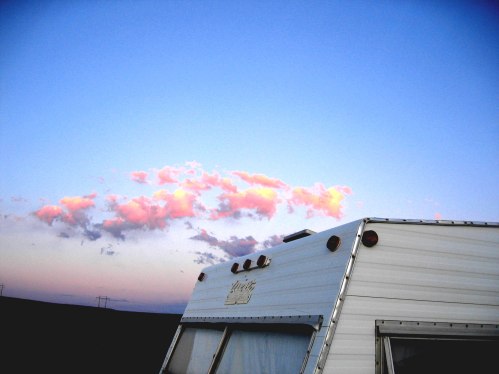
![]()
